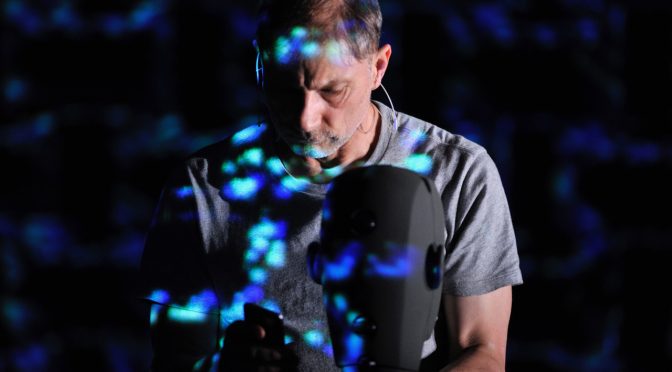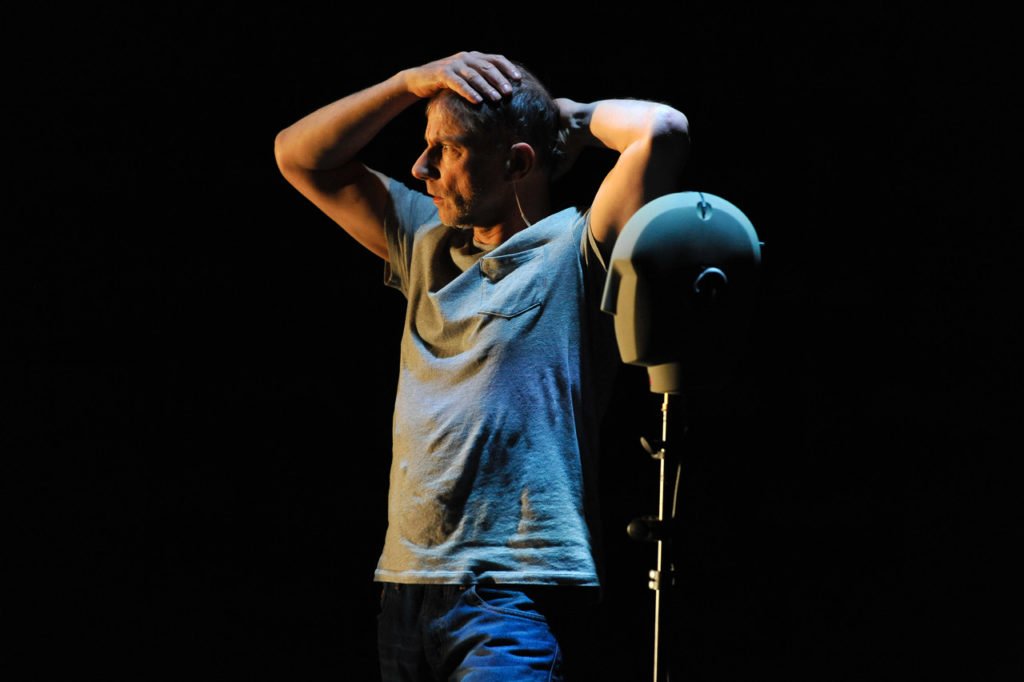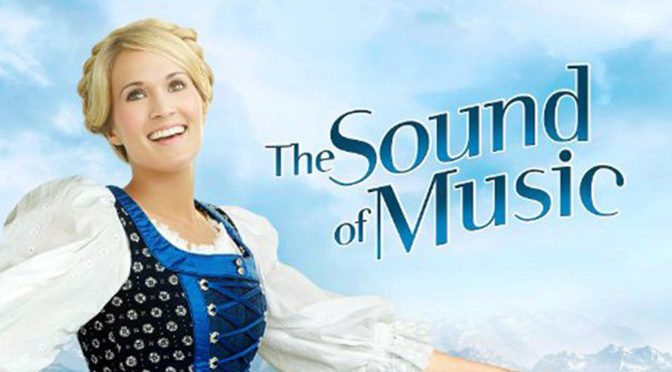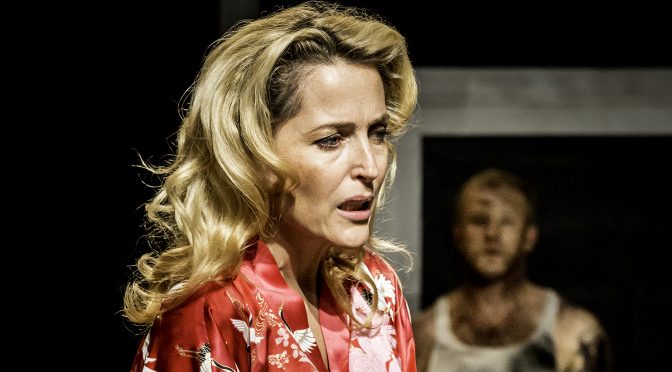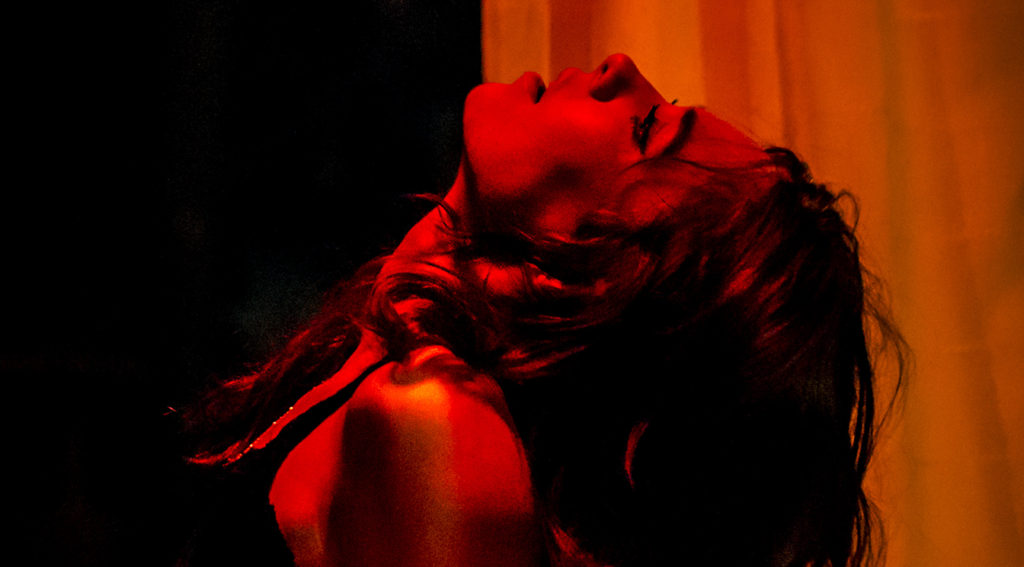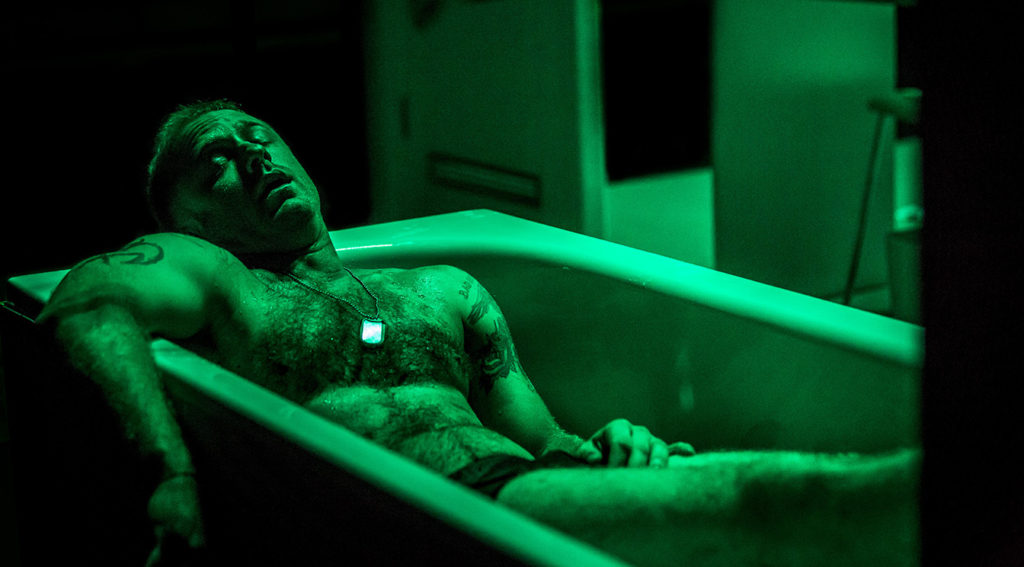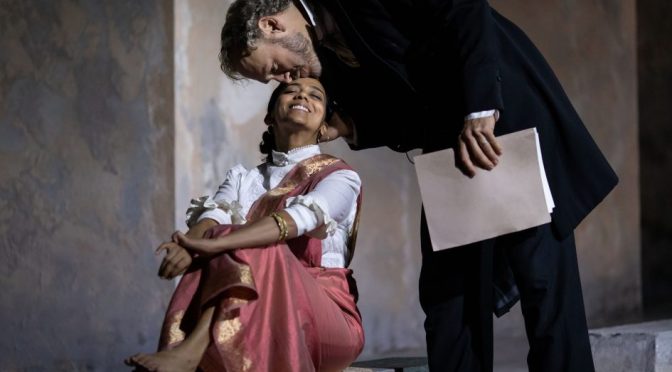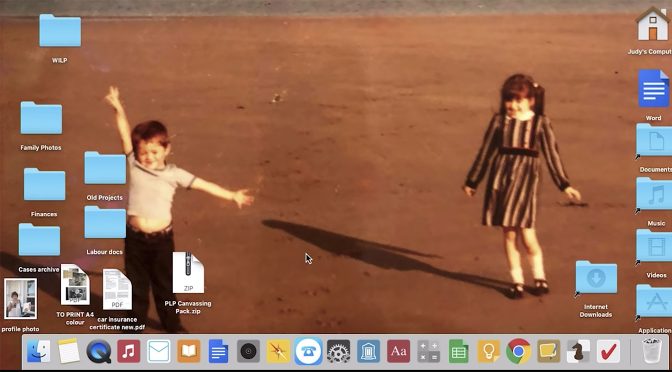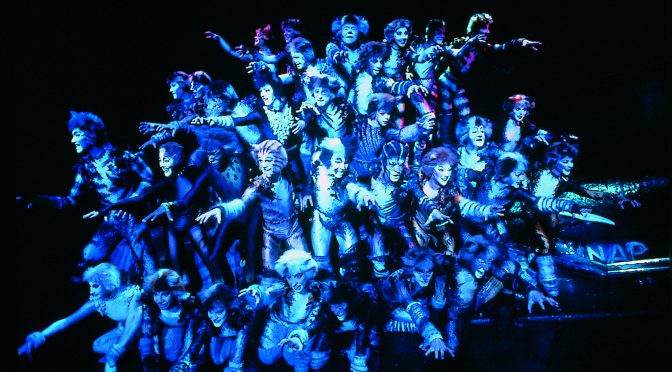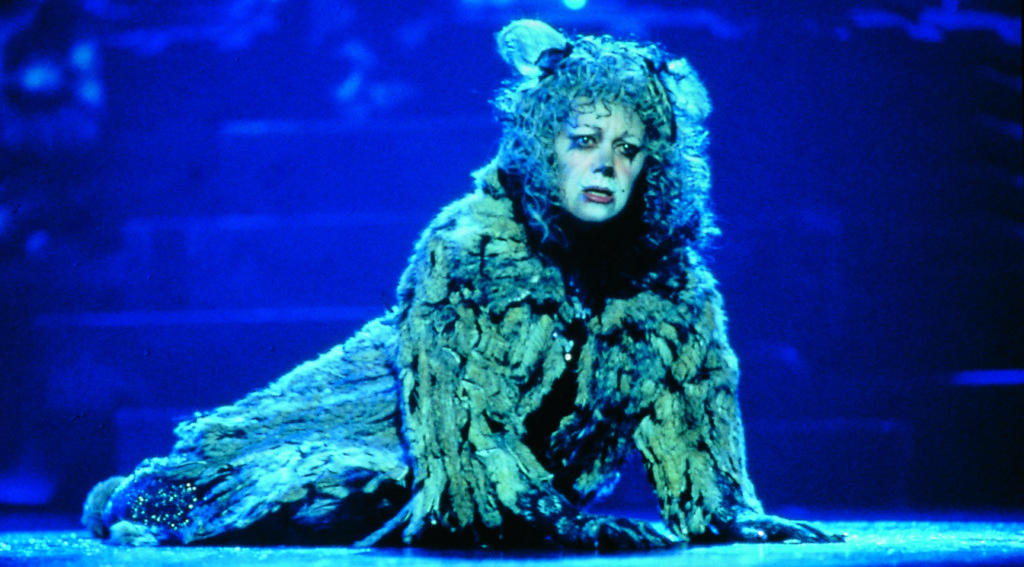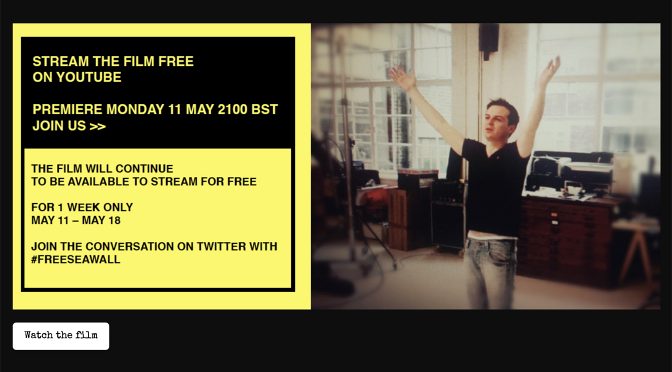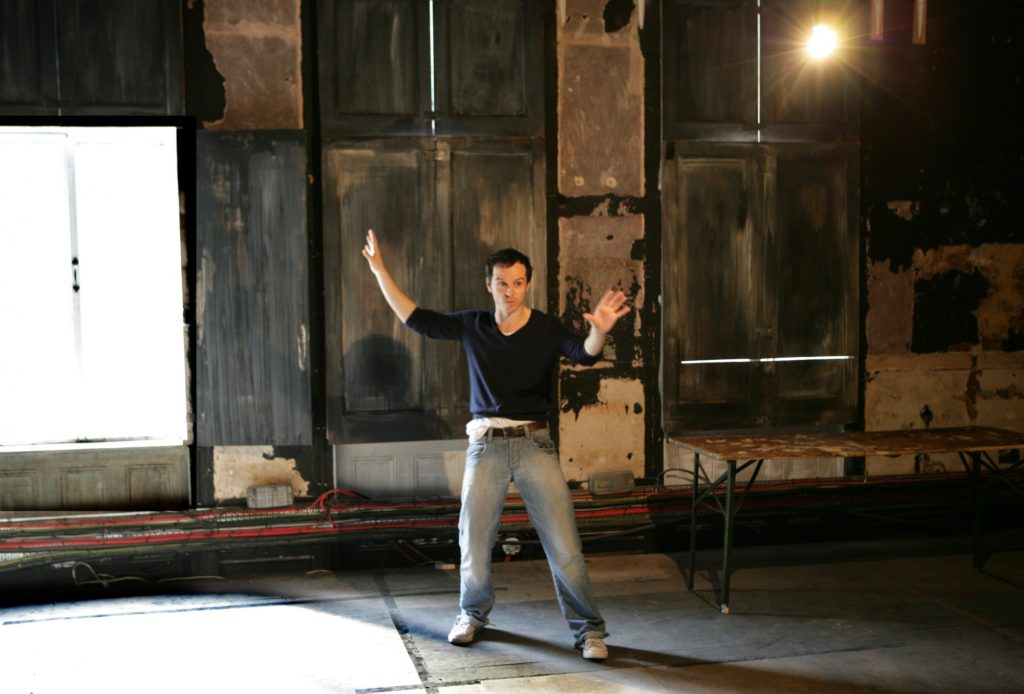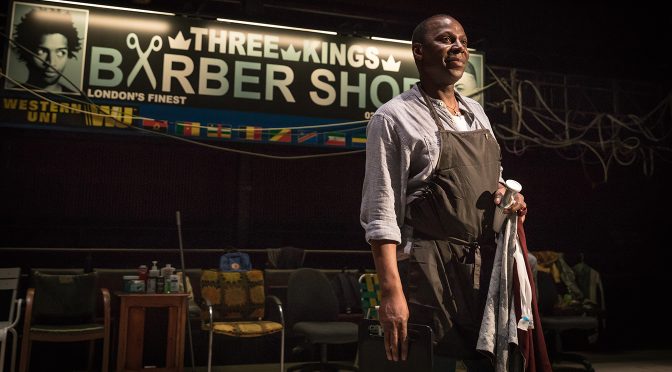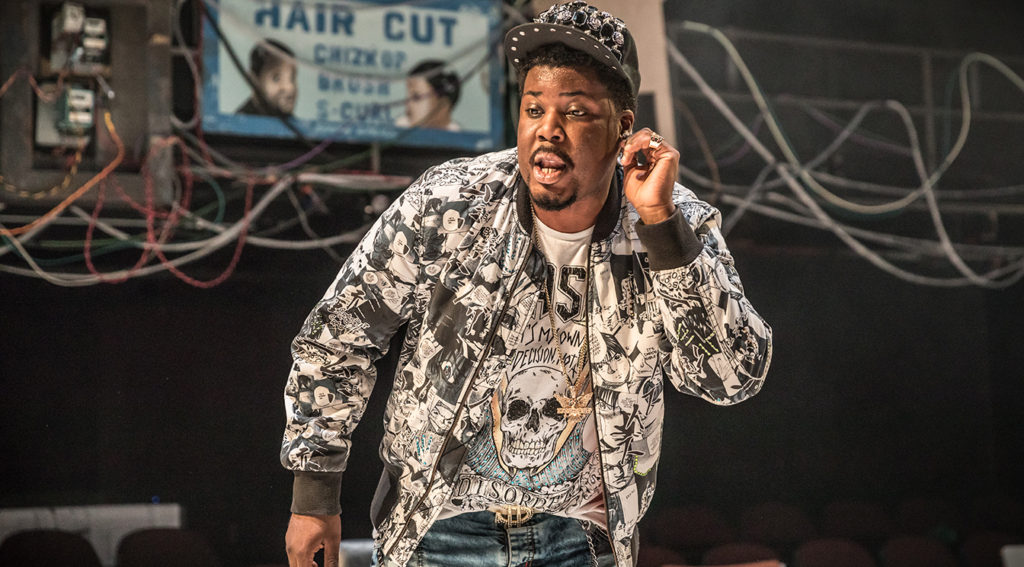Even a virtual trip to London’s South Bank is welcome during the current Covid-19 lockdown. Macbeth was filmed on a wet day earlier this year – how I miss that peculiarly British pastime of watching outdoor theatre in the rain, and would happily sacrifice the current fine weather for the chance to be a groundling again! Unfortunately, the uncomfortable fact remains that director Cressida Brown’s production – fast and full of ideas as it is – is below standard.
Brown is keen to keep the action moving and anxious to show she has fresh thinking to offer. While surely defendable in a debate, the ideas don’t work well on stage. Maybe there’s too much of an eye on provoking discussion in the school room? Too many innovations fail, and some are downright awful. It’s all the more disappointing as the relatively small cast works hard, only to end up burdened by the direction.
First the famous witches. They arise from a pile of dead bodies on the battlefield, which is a good idea. But all three fail to be scary. The attempts at a playful air aren’t even creepy. Driven by the reference to a “bloody child” in Act 4 scene 1, the apparitions of the witch’s “masters” are dolls… and the scene ends up closer to funny than fearsome.
That the Scottish court, with Georgia Lowe’s design, is a contrast to blood-stained soldiers isn’t bad. But making Dickon Tyrrell’s Duncan a golf-playing, egotistic fool (even if some rulers are just that) makes it hard to care about what happens to him. As for his son Malcolm, the idea of emphasising his schoolboy age makes sense but comes back to bite Brown and makes Aidan Cheng’s performance in the role regrettable. Putting him in shorts and Harry Potter glasses really doesn’t work when he tries to trick Macduff as to his “voluptuousness”. Cheng’s delivery is so uninspired that other characters don’t even bother to stay onstage and listen to him.
There are bigger ideas and surprises in the show. Most will be shocked that Lady Macbeth’s encounter with the doctor has disappeared – I assume there’s some academic thinking behind this, but it leaves the audience (let alone Elly Condron, who takes the role) a little cheated. That Lady Macbeth is visibly pregnant during most of the show fits in with a debate most do know about. But, without explicit references in the text, all Condron can really do is rub her padded tummy a lot. Oh dear.
Thankfully, the show still has points to enjoy. Condron’s chemistry with her husband is good; that their relationship fraught from the start aids her powerful performance. The dynamic between Macbeth and Banquo benefits from Samuel Oatley’s strong performance as the latter. Best of all, taking the title role, is Ekow Quartey. His Macbeth is puzzled, frightened and nervous, even suicidal at one point. Good at showing panic and great in his fight scenes, Quartey can work the crowd as he goes to “mingle with society” during the banqueting debacle. It’s just a shame that this fine Macbeth finds himself in such a poor production.
Photo by John Wildgoose
Available until UK secondary schools reopen on globeplayer.tv
To support, visit www.shakespearesglobe.com


